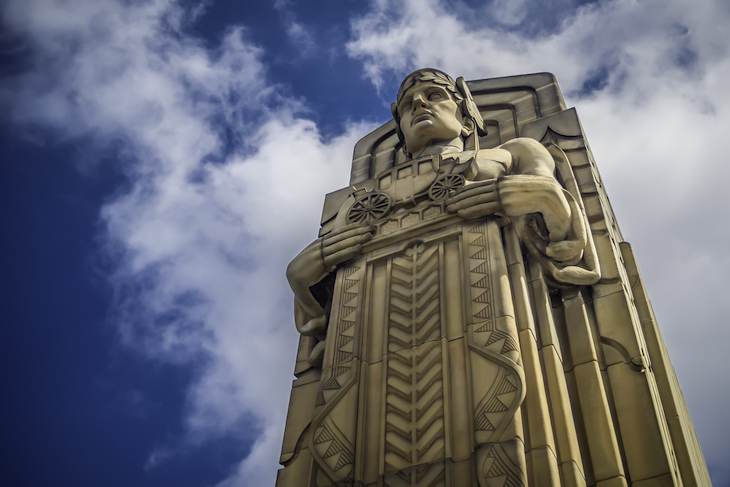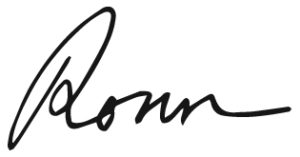My fellow Clevelanders,
As people across our country contend with the results of a divisive and difficult election, many of us are concerned about the future of our political and social landscape. Yet, in the midst of the uncertainty that has in many ways defined this year, it is important to take stock and look forward if we hope to learn from this experience. On the heels of this election, a few truths stand out to me:
Civic engagement gives us a voice. During a year unlike any other in our history, which has so far been shaped by a historic movement for Black lives and the ongoing impacts of a global pandemic, a record number of Americans of all political persuasions showed up for this election. Here in Ohio, nearly 54,000 people – almost evenly split between Democrats and Republicans – volunteered as poll workers, setting a new record. Voter turnout in Ohio also shattered records, with more than 5.8 million people casting their ballots. Some voted early, others voted by mail and many waited in lines on election day to cast their vote in person. This is something we should celebrate. Our democracy depends on the participation of all citizens, and we should find ways to sustain and build on this momentum as we move forward. Here in Greater Cleveland, we have important Mayoral, City Council and statewide races on the horizon in 2021. While our national elections receive global attention, these local and statewide elections have an enormous impact on our daily lives. The work of engaging, educating and empowering residents to make their voice count in these upcoming elections starts now. I am grateful for groups like Cleveland Votes, Northeast Ohio Voter Advocates and many others that are leading voter education and engagement efforts year-round in our community. As we help more people exercise their civic rights, we must also resist partisan efforts to cast doubt on our democratic processes through unfounded conspiracy theories, misinformation, voter suppression and fearmongering. No matter which side of the political aisle you identify with, those tactics threaten our democracy.
Trusted information is more important than ever. As we face an ongoing public health crisis and its far-reaching effects, we are also battling what has been described as a “pandemic of misinformation.” A report from Gallup and the Knight Foundation documents the increasing polarization and distrust in the American media landscape, a trend that has only strengthened in recent years. This is something we must urgently address. There is a reason that the freedom of the press is constitutionally protected in this country – our founding fathers recognized its central importance as “one of the greatest bulwarks of liberty.” To counter this, we must understand the ways traditional media is failing to meet the information needs of many residents – from holding government leaders accountable to offering useful information that people can trust – and we must find creative ways to fill those gaps. Cleveland Documenters, a pilot program we helped to launch earlier this year in partnership with City Bureau and Neighborhood Connections, is recruiting, training and paying Greater Cleveland residents to document official meetings of the Cuyahoga County and City of Cleveland governments and contribute to the communal pool of public knowledge. You can learn more about Cleveland Documenters and get involved here.
Our country is deeply divided, and we have work to do to heal these wounds. It can feel as though we are living in two different Americas. The camps on the left and right of the political aisle are increasingly polarized and intractable in their opinions. We must find a way to communicate effectively with one another, find the intersections in our goals, and work across the aisle if we wish to accomplish anything. This work is personal. Our divides won’t be bridged by shouting louder than the opposition or throwing more money behind our preferred political candidates. Paying closer attention to the ways we communicate with one another is an important first step. Common Ground, our annual community conversation event, provides a helpful roadmap for people to have productive, respectful conversations – a valuable resource in this historically divisive and vitriolic climate. These rules are offered at the beginning of each conversation, when participants take a moment to consider their own role in understanding and connecting to one another:
- Value all voices: Make sure there is room for the quietest among us to be heard in conversation.
- Listen to understand: Strive to understand each other, even across differing points of view.
- Speak from experience: Build understanding by replacing generalizations with personal observations about ourselves and our own lives.
- Respect everyone: We all want what’s best for our families and our communities. Even if you disagree, don’t be disagreeable.
- Look forward: Focus on possibility, on how to start and who can help.
- Question kindly: Each unknown is an opportunity to grow. If you disagree, try to learn. Ask questions. Be kind.
These rules were developed with help from several community partners, including The City Club of Cleveland, Case Western Reserve University’s Community Innovation Network and Neighbor Up. As one of our nation’s great free speech forums, The City Club is renowned for its tradition of debate and discussion. You can explore upcoming City Club forums and make plans to participate virtually here. The Community Innovation Network at Case Western works to build bridges in the form of relationships between residents, institutions and communities; you can learn more about their work here. Neighbor Up is a national model in community network building that counts thousands of Greater Clevelanders as members. You can learn more about Neighbor Up and participate in an upcoming community building practice here.
The big problems won’t be solved by a single election. While federal and state policy plays a powerful role, the most complex challenges faced by our country and our community – the impacts of the COVID-19 pandemic; structural racism; and ongoing economic turmoil, including the reality of a massive deficit and the effects of automation on middle class jobs – will not be solved by a single candidate or election. These challenges also won’t be solved by any one organization. Big problems require collaboration and persistence. To address these issues in meaningful ways, we need to work together, day in and day out, to continue progress. In the philanthropic field, we can use our dollars to leverage wider collaboration and additional funding. We can facilitate cross-sector partnerships and support people who are passionate about making a difference. Just this year, Greater Clevelanders have shown what is possible when we come together to tackle a major challenge, with thousands of people and organizations uniting to support and coordinate relief for those impacted by the COVID-19 pandemic. Likewise, I am inspired by the ongoing efforts by so many individuals and groups in our community to address the biases, practices and systems that reinforce structural racism – a stubborn and dangerous reality in our country and right here at home. We will not heal our divisions until more of us make an effort to better understand the lived experiences of others. Programs like the Racial Equity Institute’s workshops offered by Thirdspace Action Lab and the YWCA’s 21-Day Racial Equity and Social Justice Challenge are engaging people across the community and steadily making an impact.
All of this work starts at home, and each one of us has a role to play as we work to realize a brighter future. We at the Cleveland Foundation are committed to acting locally with a global vision and working with people of all backgrounds and beliefs to realize a healthier, more equitable and more democratic future for all. Today is a new day. Let’s get started.





Outstanding overview of the current state of CLE, NEO and USA, with some roadmaps to addressing inequality and divisiveness. LOTS of hard work ahead of us. Leadership, powerful and visible, is really needed – NOW and moving forward – from those in politics, business, faith, healthcare, non-profits and protective services who can motivate Clevelanders to consistent, sustainable, positive action. Thank you.
What a road map for change. Not only did you motivate but you told us where we can get involved. I will be sharing this info with friends, family and other groups I participate with.
City of Cleveland voter turn out was not good!
Democrats in county, State, have poor vision